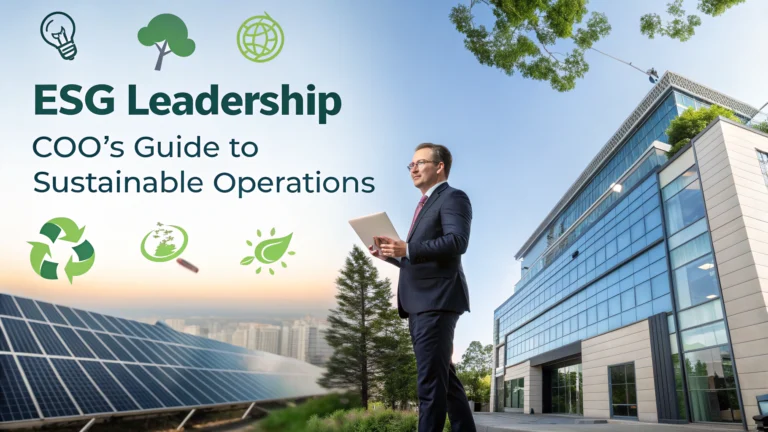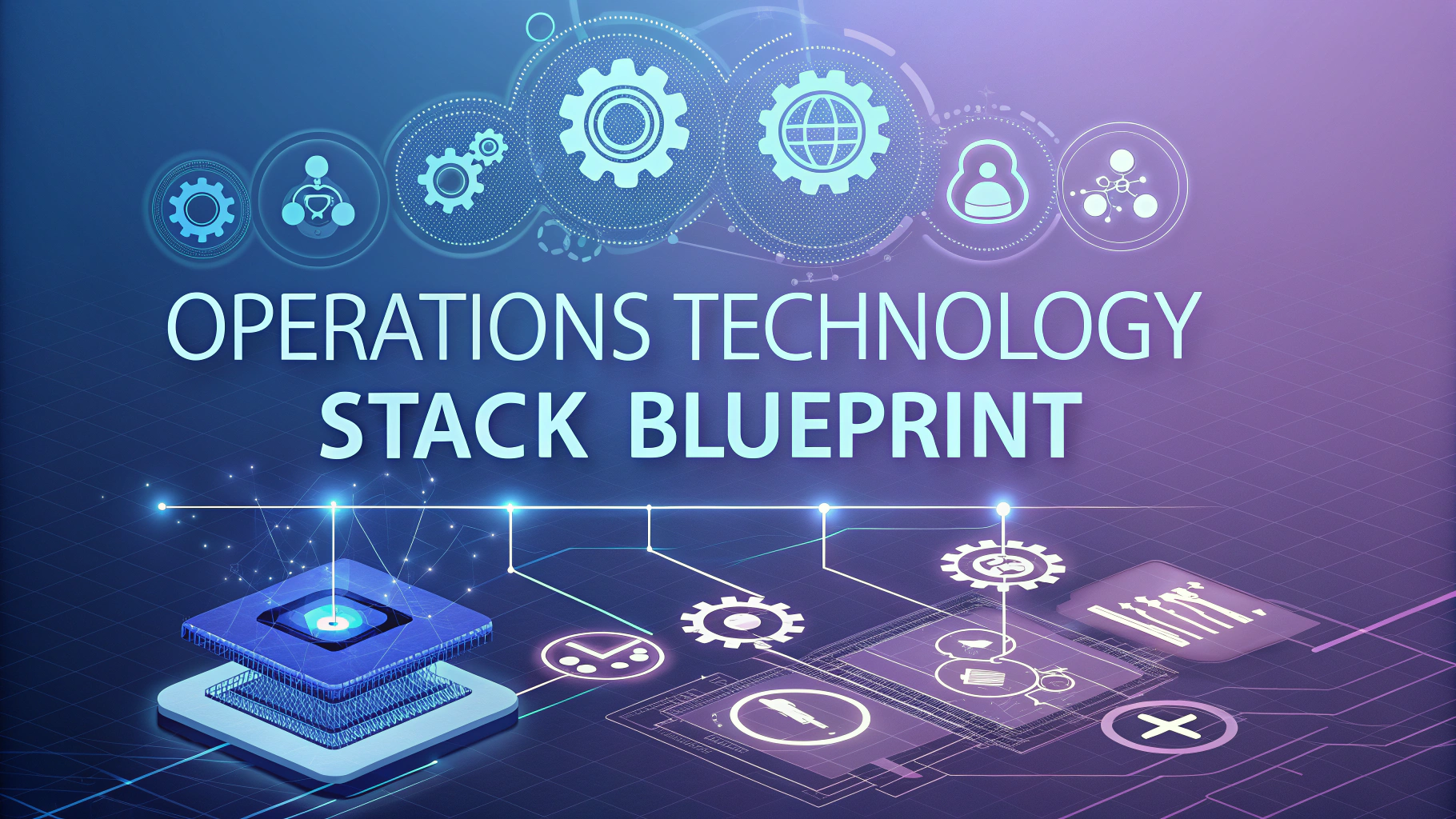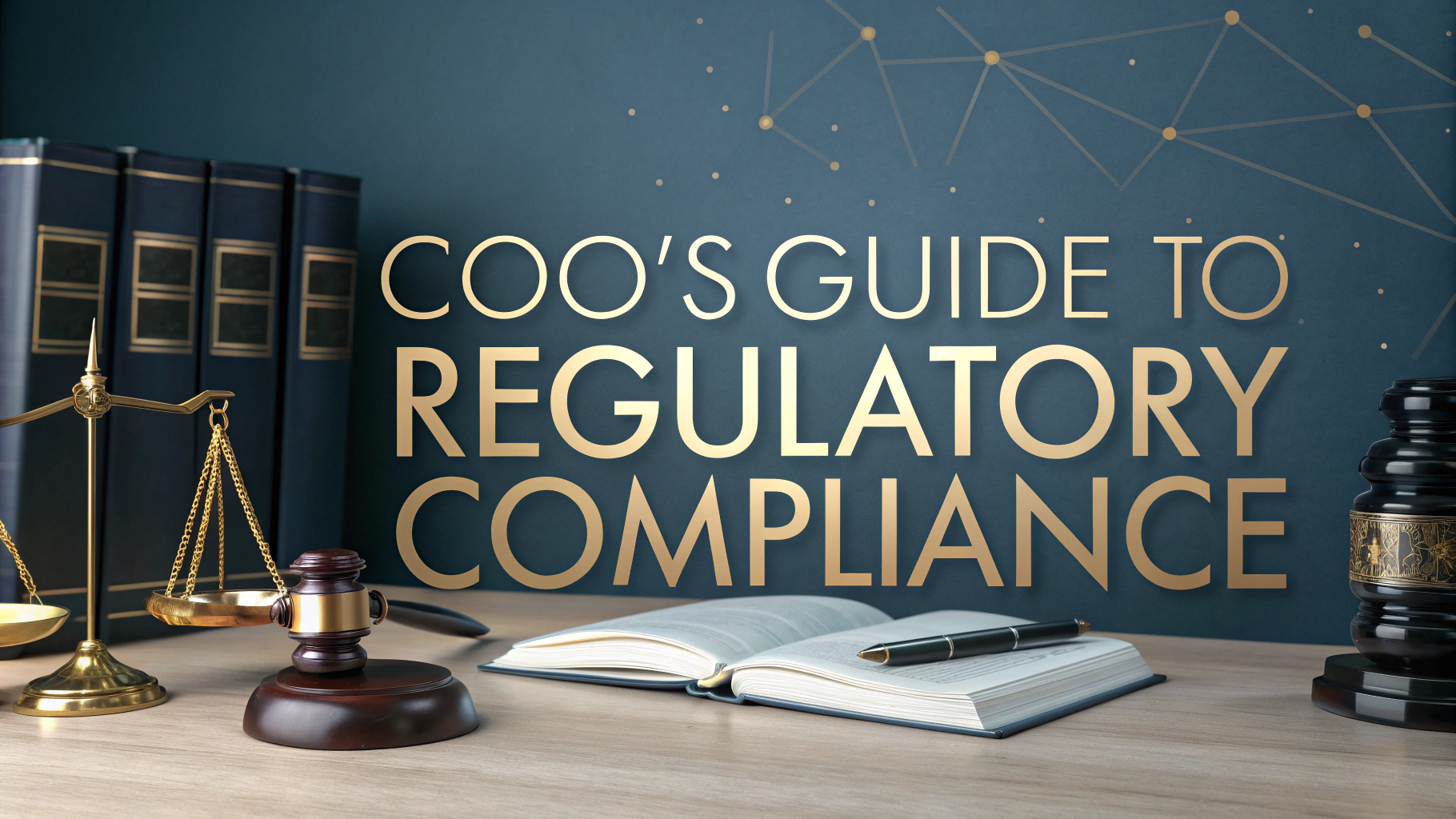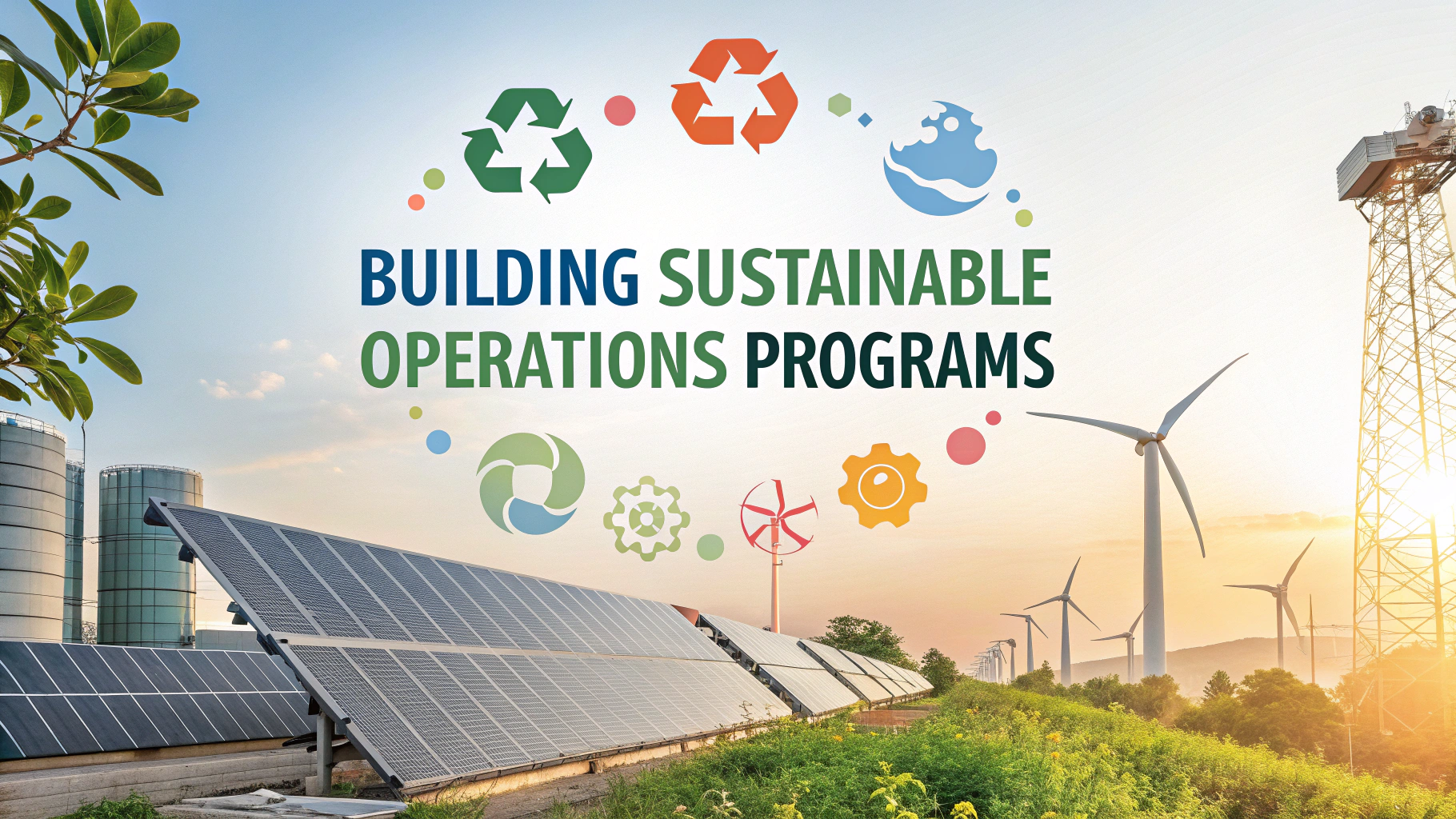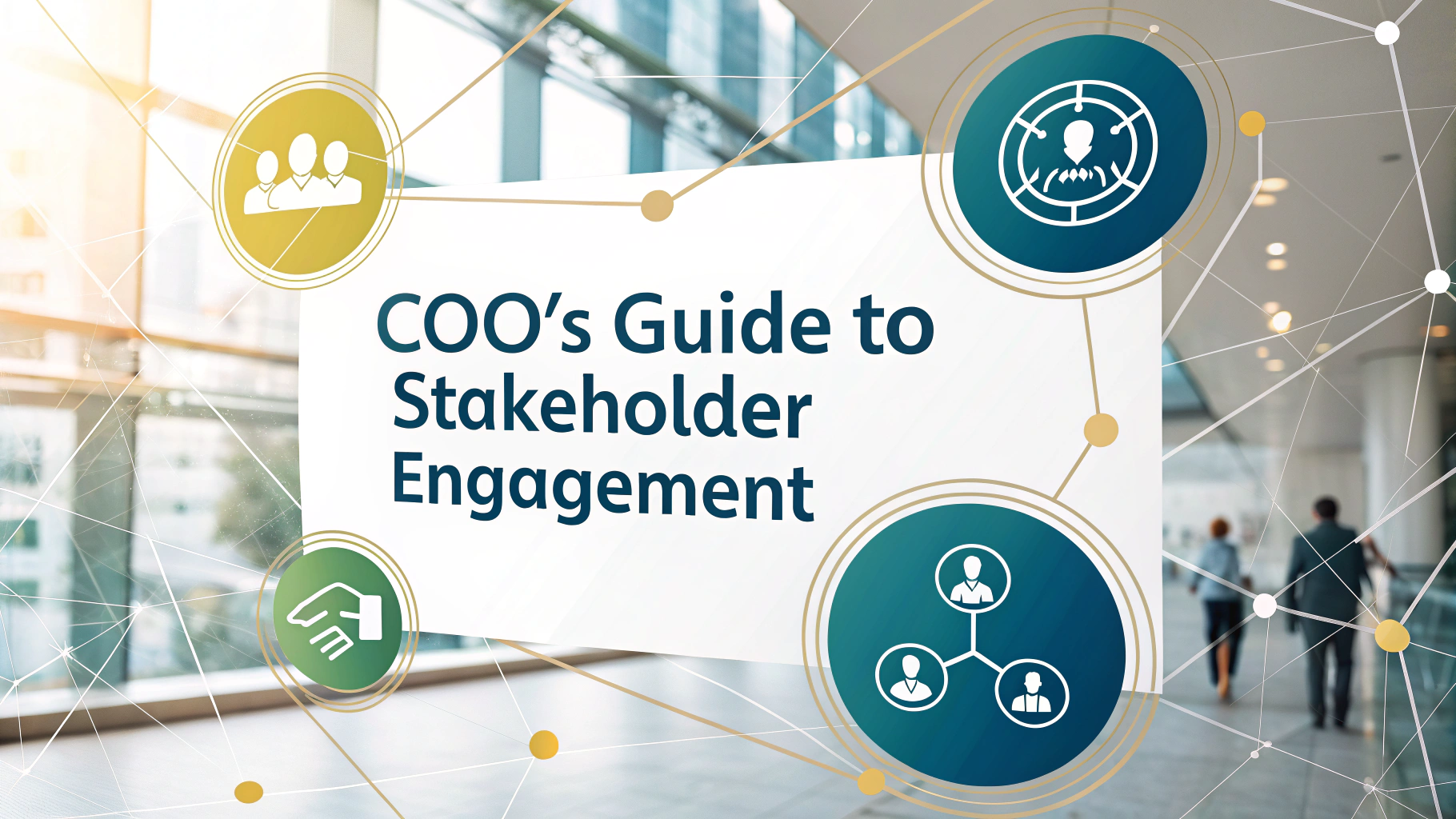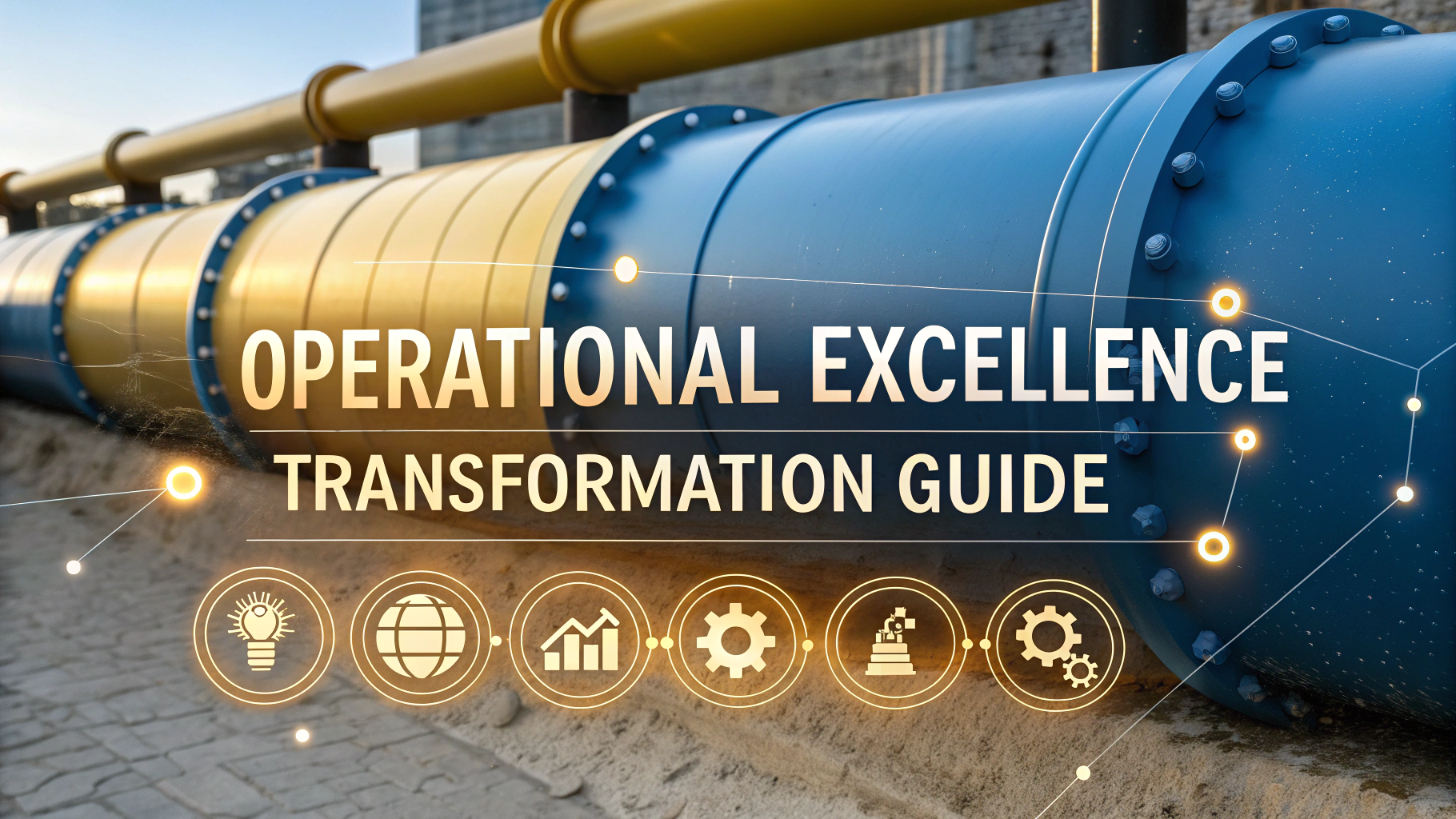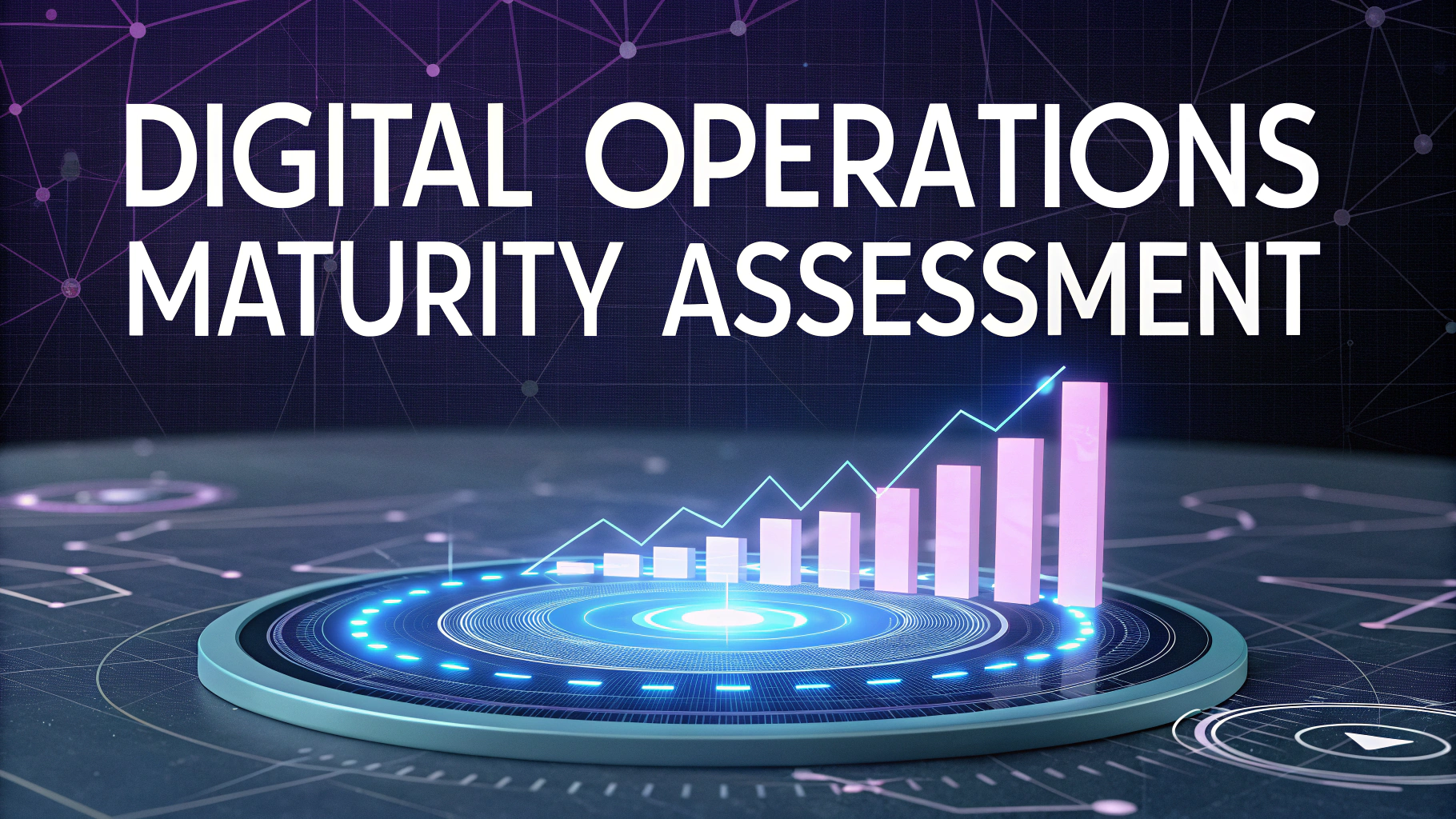A COO’s role in implementing ESG (Environmental, Social, and Governance) initiatives has become central to business success and sustainable growth.
Organizations face increasing pressure from stakeholders, regulators, and consumers to demonstrate meaningful commitment to sustainability and responsible business practices.
This quick guide outlines practical strategies for COOs to lead ESG transformation while maintaining operational efficiency.
Building an ESG Framework
- Assess current environmental impact through emissions tracking and resource consumption
- Develop clear metrics and KPIs aligned with industry standards
- Create accountability structures across departments
- Establish data collection and reporting mechanisms
Environmental Priorities
Set science-based targets for carbon reduction aligned with the Paris Agreement goals.
- Implement energy efficiency programs
- Transition to renewable energy sources
- Optimize supply chain logistics
- Reduce waste through circular economy principles
Social Responsibility Integration
- Develop diversity and inclusion programs
- Ensure fair labor practices throughout the supply chain
- Create community engagement initiatives
- Implement employee wellness programs
Governance and Risk Management
Establish transparent reporting structures for ESG performance and compliance.
- Regular ESG risk assessments
- Clear policies for ethical business conduct
- Supplier code of conduct implementation
- Stakeholder engagement protocols
Technology and Data Management
| Technology Tool | Application |
|---|---|
| ESG Data Management Systems | Tracking and reporting environmental metrics |
| Supply Chain Management Software | Monitoring supplier compliance |
| Energy Management Systems | Optimizing resource consumption |
Change Management Tips
- Build cross-functional ESG teams
- Provide regular training and education
- Communicate progress consistently
- Celebrate ESG achievements
Measuring Success
Track progress through established ESG reporting frameworks like GRI, SASB, or TCFD.
- Monitor carbon emissions reduction
- Track waste reduction metrics
- Measure diversity improvements
- Calculate ROI on sustainability initiatives
Resources and Support
Connect with industry organizations for guidance and best practices:
- World Business Council for Sustainable Development (WBCSD)
- Global Reporting Initiative (GRI)
- Sustainability Accounting Standards Board (SASB)
Taking Action Forward
Start with quick wins that demonstrate value while building long-term ESG strategies.
- Set realistic short-term goals
- Secure executive buy-in
- Allocate necessary resources
- Review and adjust strategies regularly
Implementation Timeline
Develop a phased approach to ESG implementation that aligns with organizational capacity and resources.
- Phase 1: Assessment and Planning (3-6 months)
- Phase 2: Initial Implementation (6-12 months)
- Phase 3: Scale and Optimize (12-24 months)
- Phase 4: Advanced Integration (24+ months)
Stakeholder Engagement
- Regular updates to board members and investors
- Employee feedback mechanisms
- Customer sustainability surveys
- Community outreach programs
Financial Integration
Align ESG initiatives with financial planning and risk management strategies.
- Budget allocation for sustainability projects
- Green investment opportunities
- ESG-linked compensation structures
- Cost-benefit analysis of initiatives
Industry Collaboration
Participate in industry-wide initiatives to amplify impact and share best practices.
- Join sector-specific sustainability coalitions
- Participate in ESG working groups
- Share learnings with industry peers
- Contribute to standard-setting discussions
Building a Sustainable Future
ESG transformation requires sustained commitment and continuous adaptation to evolving standards and expectations.
- Stay informed about emerging ESG trends
- Maintain flexibility in approach
- Build long-term resilience
- Create lasting positive impact
Remember that successful ESG implementation is a journey rather than a destination, requiring ongoing commitment, innovation, and adaptation to create lasting sustainable value.
FAQs
- What is ESG and why is it important for COOs to focus on sustainable operations?
ESG (Environmental, Social, and Governance) represents a framework for evaluating corporate responsibility. COOs need to focus on sustainable operations because it drives long-term value, meets regulatory requirements, reduces operational costs, and addresses stakeholder expectations. - How can COOs effectively measure and track ESG performance in operations?
COOs can track ESG performance through established metrics like carbon emissions, energy consumption, waste reduction, water usage, supplier diversity, and employee safety indicators. They should implement ESG data management systems and regular reporting mechanisms. - What are the key regulatory compliance requirements COOs need to consider for ESG?
COOs must consider emissions reporting requirements, environmental protection laws, labor standards, supply chain transparency regulations, and emerging ESG disclosure requirements specific to their industry and operating regions. - How can COOs integrate sustainability into supply chain management?
COOs can implement supplier sustainability assessments, establish green procurement policies, optimize logistics for reduced emissions, require supplier code of conduct compliance, and develop circular economy initiatives. - What role does technology play in sustainable operations management?
Technology enables real-time monitoring of resource consumption, automation for efficiency, data analytics for sustainability reporting, IoT sensors for environmental monitoring, and digital solutions for supply chain transparency. - How can COOs engage employees in sustainability initiatives?
COOs can implement sustainability training programs, create green teams, establish employee suggestion programs, develop sustainability-linked incentives, and communicate ESG goals and progress regularly. - What are the most effective strategies for reducing operational carbon footprint?
Key strategies include energy efficiency improvements, renewable energy adoption, electrification of vehicle fleets, waste reduction programs, and implementation of circular economy principles in production processes. - How should COOs balance cost considerations with sustainability investments?
COOs should focus on initiatives with clear ROI, utilize green financing options, implement phased approaches to sustainability projects, and consider total cost of ownership when evaluating sustainable alternatives. - What are the best practices for ESG risk management in operations?
Best practices include conducting regular ESG risk assessments, developing mitigation strategies, implementing environmental management systems, establishing crisis response protocols, and maintaining strong stakeholder communication. - How can COOs ensure transparency in ESG reporting?
COOs should implement robust data collection systems, follow established reporting frameworks (GRI, SASB), conduct third-party verifications, maintain detailed documentation, and ensure regular stakeholder communication.
